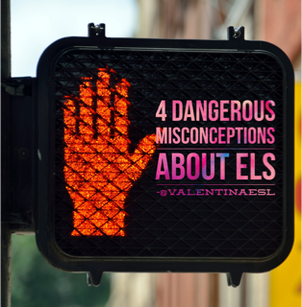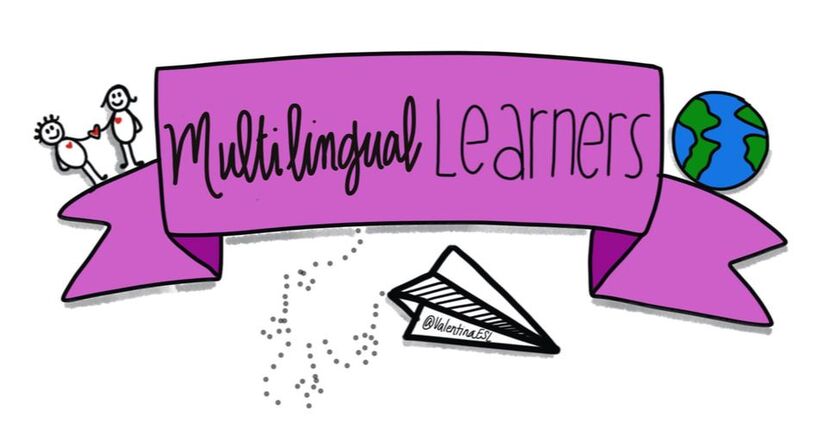 Those are YOUR kids. Fix them. One of the scariest things we can do is think that some of our students are someone else’s responsibility. When we embrace the understanding that “it takes a village” and that “we’re all in this together” our students will be better off. Our English Language Learners may be served by both a classroom teach and an ESL specialty teacher; however the ESL specialty teacher serves as a SUPPLEMENTARY teacher not as a replacement teacher. Every staff member that works with a child affects the child’s education…good or bad.
They can’t do much. Let them color. This misunderstanding is DANGEROUS. ELLs come with varied skillsets, backgrounds, and prior knowledge. Some have more English language than others. Some have a greater developed native language than others. All of this and more affects the development of their new target language. In the case of a new immigrant, assuming that they can’t do much, so we let them color or do another meaningless task, sets them back drastically. It’s important that we assess what the child DOES know and build on that knowledge. Making connections with what the student already knows and bridging languages as soon as possible is key to English language development. Their parents don’t come to conferences. They don’t care about school. This type of assumption hurts my feelings personally because I know firsthand that it’s not always true. Some parents (especially parents of ELLs) face barriers that we may not be aware of that prevent them from coming to school for conferences and school events. This does not necessarily mean they are not supportive of education. In many instances, such as my own, families are so supportive of education that they left everything behind to immigrate to America for their children’s education. Some barriers that tend to prevent parents from coming to school for conferences and events include language, transportation, child care, and even their own cultural traditions about school. When I was in elementary school, my parents faced every single one of these barriers. Eventually we had an AMAZING teacher who started making home visits to our house! GREAT teachers find a way to reach students and families where they are. I heard them talking to their friends at recess…they don’t need accommodations on classwork. I literally remember a conversation with a teacher who said these exact words. The student was struggling academically and behaviorally in class so I went to meet with her. My goal was to help her with supporting the child. He had only been in the United States for less than a school year all together. He was bright and had a lot of knowledge in his native language. The problem was that he was not happy that he had to move from his friends, his house, and leave his dog back home. He was angry at the situation that he had no control over. All of this was affecting his new language development. He needed support affectively, cognitively, and linguistically. These, by far, are not all of the misconceptions we make. The best way to avoid these hazardous misconceptions and others is to simply talk to the students and get to know them individually. Building relationships and connecting with learners helps open the door to the potential for even greater learning to occur. And our kids deserve it! Comments are closed.
|
Categories
All
|

 RSS Feed
RSS Feed
